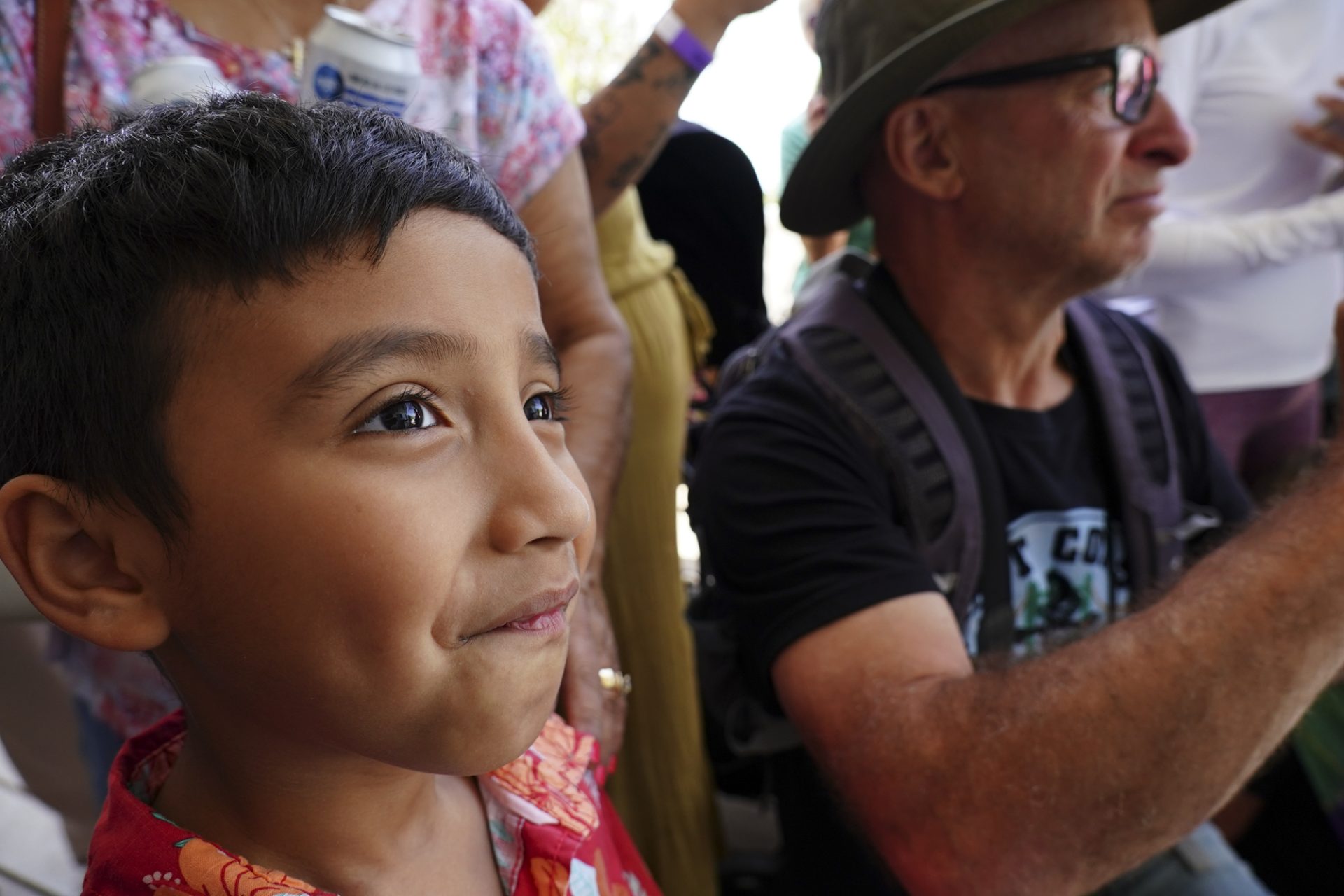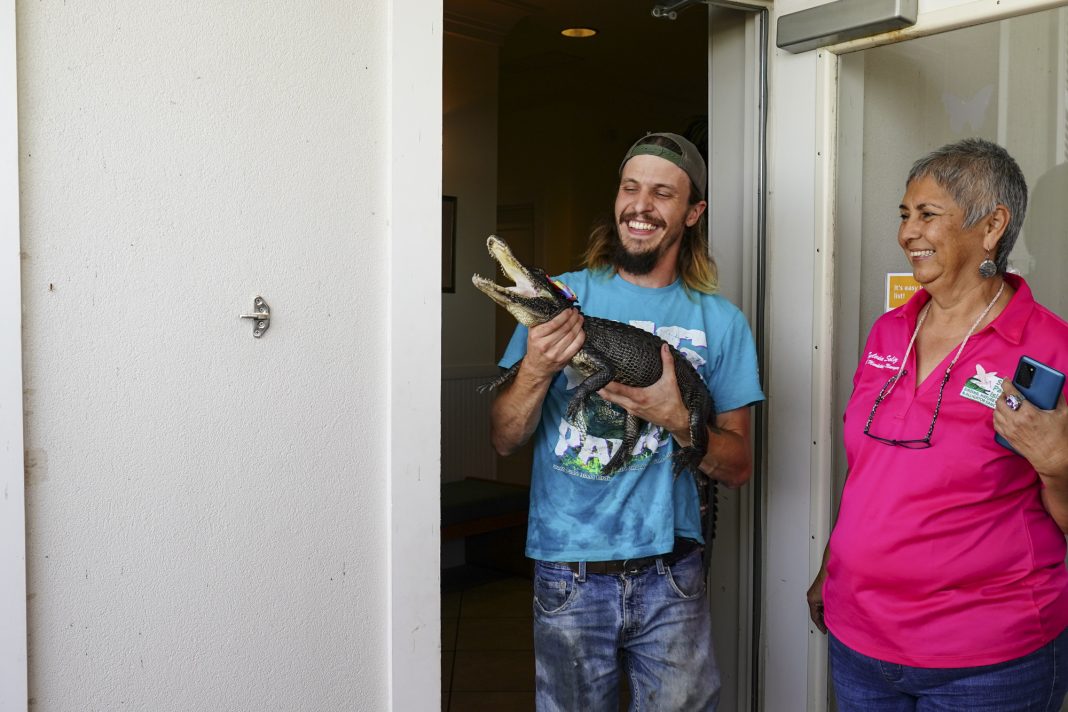She is ready to go and be an alligator again.
SOUTH PADRE ISLAND — A collective croon goes up from the crowd waiting behind the rope line as Judith, with a hair bow on her head, comes out with handler and rescuer Jacob Reinbolt on Saturday at the South Padre Island Birding & Nature Center & Alligator Sanctuary.
“She is ready to go and be an alligator again,” Jacob Reinbolt, educator and self-described gator wrestler at the sanctuary, announces to the group.
The crowd is there to celebrate as Judith officially joins the rest of the alligators at the sanctuary in the juvenile alligator pond following her recovery.

According to Reinbolt, on Jan. 6, the center received an email from Javier De León, superintendent of Estero Llano Grande State Park, asking if they could help a juvenile alligator spotted at the park with electrical tape wrapped around its mouth.
On Jan. 9, Reinbolt says he visited the park with a kayak to assess her situation.
Sometimes all Reinbolt needs to do is cut them loose, and the alligator returns to life as usual. This was not the case for Judith.
An entire roll of electrical tape wrapped around her mouth, but Judith grew even after the taping. The now tightly wound tape had damaged her skin and misformed her skull, causing her to lose teeth. Inside, wood chips filled her mouth.
Reinbolt estimates Judith had been like that for at least six months.
“I actually was sitting on her un-taping the tape while on the phone with Texas Parks and Wildlife to get our control number so we could bring her back to the sanctuary,” he remembers.
Her name comes from internationally recognized disability activist Judith Heumann, who fought for the rights of disabled people, according to Robyn Minifie, which seemed appropriate for the alligator. Robyn Minifie, her husband Daryl and Deena Oungst played a part in bringing the alligator to the attention of park staff after Oungst first photographed and filmed what happened to Judith and so got to name her.
“This woman had been muzzled a lot for her speaking out. They thought of her as a threat. A lot of people think of alligators as a threat, and we know that they are not. So that is how she got her name,” Minifie said.
Once Judith was back at the sanctuary, the task was to help get her back to eating, which after months of starvation, would seem an easier task than it is.
Alligators go through a period in the winter months known as brumation, where their metabolism slows down to survive the colder temperatures, so they stop eating. Judith had already entered brumation, so staff had to raise her temperature to get her to eat because she was malnourished from starvation.
Reinbolt estimates Judith will remain for at least a year or until she gets too big for this sanctuary to keep and will transfer to another within the state.
Reinbolt says that alligators like Judith, and the people who practice their cruelty on them, offer a challenge to change how we perceive the creatures we hate.
“We do not get to pick and choose what animals we care about. This [taping] was by someone who does not care about and does not like alligators. How can we expect a person like that to change if we can’t do the same thing ourselves,” he said.
To see more, view Brownsville Herald photojournalist Denise Cathey’s full photo gallery here:




